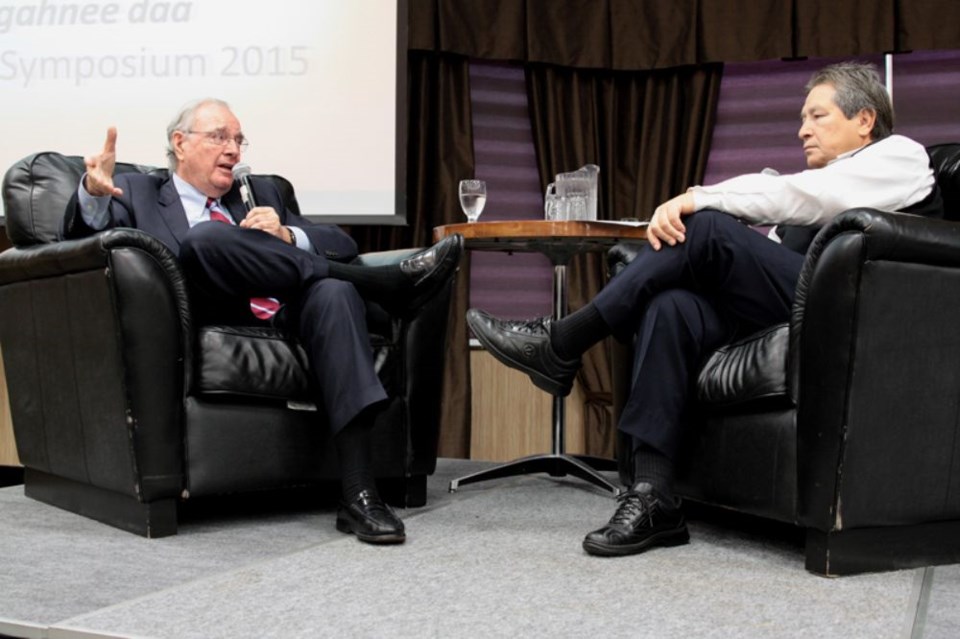THUNDER BAY -- Renewed hope for First Nations education rang out over the first day of the Neegahnee daa Education Symposium.
Education has been a contentious file between the federal government and First Nations over the last decade and the new Liberal government’s tone shift toward First Nations sovereignty is producing mutual goodwill.
"We have to give credit where credit is due," said Ontario Regional Chief Isadore Day.
"This Liberal government has put itself out there. It has said, 'listen, this is what we're committed to doing.' What we're hearing today is there are also commitments we're going to make and it's to actually to allow those commitments to move forward."
When Carolyn Bennett was sworn in as Minister of Indigenous and Northern Affairs on Nov. 4, Day invited her to Thunder Bay for Tuesday's event to begin discussions on the future of First Nation schools.
“To me, it’s not only about education outcomes. It’s about health outcomes. It’s about economic outcomes,” Bennett said.
“It’s about equipping young people with the tools they need to be successful.”
One of those tools is simply financial. According to former Liberal Prime Minister Paul Martin, on-reserve students receive between 30 and 50 per cent less government support than those in provincially-funded schools.
“No one would come along in any one of our major cities -- in downtown Toronto --and say, ‘how can we afford to educate the people of Toronto?’ They wouldn’t say that and equally, you cannot say there’s any part of this county we cannot afford to fully educate the youngest population,” he said.
As Prime Minister, Martin signed the Kelowna Accord, $5-billion commitment to infrastructure in First Nations, including $1.9 billion as a “down payment” for education. It was quashed when the Conservatives were elected in 2006 but Martin said Prime Minister Justin Trudeau intends to revive that education commitment.
Calling the Conservative First Nations Education Act “a triumph of stupidity,” he criticized the outgoing government for imposing the bill on a bureaucracy without resources to implement it.
“When the First Nations come up with their plan, that bureaucracy will (be ready),” he said.
“That bureaucracy, unfortunately, was under a government that was dictating what it should do. I think that bureaucracy will now be free to do what I think they want to do.”
Martin shared an armchair exchange with Gordon Peters, the Grand Chief of the Association of Iroquois and Allied Indians who holds the education portfolio for the Chiefs of Ontario. Peters was satisfied with Martin’s vision but was suspicious the focus on funding could fall short of need.
“What he’s saying to us is we’re going to have a hell of a time to reach parity. Parity? We need to go way beyond parity,” Peters said.
“Our model has been the francophone schools outside of Ontario. You look at their tuition rates compared to ours and it’s more than double. That’s what is required to be able to revitalize our languages, our cultures and our communities.”
Beyond funding disparity, long-standing divisions exist within communities over the prominence culture and language should take in education reform. First Nations reached an agreement with Ontario in May after a year of negotiations and Peters feels a regional planning approach with federal support has prevailed.
“I think the notion of a national strategy is gone. We’ve had two attempts at a national strategy. They’ve both failed,” Peters said.
“I think it’s time to say, lets go into the regions, let’s find out how we can work together. The federal government has to build a program that’s going to be flexible enough to do that at a national level.”
